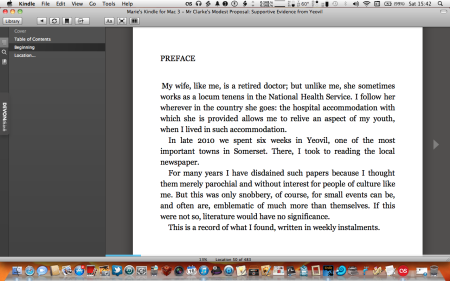This Telegraph article makes little sense. Dalrymple is using a single case to illustrate his own problem with these kind of cases being dealt with by the courts at all. (Does he think that perhaps these cases should not be the business of the legal system but of his own specialism: psychiatry?) Should we never require psychologically vulnerable people to take the stand? Does that include perpetrators? And surely the job of ensuring that witnesses are psychologically robust enough to take the stand are members of his own medical specialism: psychiatry.
And yet the main target of his criticism is (as always) the police. He mentions the CPS, of course, but only in passing. It is the CPS who decide whether or not to launch a prosecution. A casual glance at police internet fora reveals that the decisions made by the CPS are often a source of much consternation among rank and file members of the police force.
I do not believe I have every seen so many non-sequiturs and red herrings in a single op-ed piece.
What for example is this supposed to mean?
‘The police and CPS, moreover, have been heavily criticised for the low rate of conviction in cases of rape and sexual abuse, often by the very people who, in other circumstances, deny the efficacy or justice of punishment.
Why, after all, should the punishment of sexual abusers have a deterrent effect, but not that of burglars?’
Can he name the people to whom he refers in this passage?
And then of course comes the kind of evidence that Dalrymple relies on to support his often ill thought out theories: a single piece of anecdotal evidence:
‘I recall, for example, the case of a man who was wrongly accused of rape by a woman; the prosecution not only failed to prove the allegation beyond reasonable doubt, but the defence proved beyond reasonable doubt that it was false.
Yet after his release from prison on remand he was treated by those around him as if he were guilty, on the grounds that there was no smoke without fire.’
It is high time that Dalrymple learnt something from the methodology of the historian: that academic discipline has no problem with anecdotal evidence. It does insist, however, on the use of multiple sources.
Incidentally, the good doctor is back in Yeovil again.
He devoted an entire book to that small town in Somerset:

http://www.libertylawsite.org/2013/02/05/a-program-of-integrated-frivolity/
Aimed at Americans, a fact made all too clear by the following: ‘Recently I stayed a few weeks in a small town in Somerset, England called Yeovil, pronounced Yoville.’ (because they are evidently too stupid to work that out for themselves.) I’m guessing that Wifey Dalrymple is there delivering ECT to the elderly mentalists of ‘the most important town in Somerset’. She is a geriatric psychiatrist (in more ways than one). I’m also guessing she’ll be working for a while yet. Fourteen years of service, even in the publicly funded NHS, doesn’t yield a terribly generous pension. Poor old lady hitched her wagon to the wrong star there. I’m thinking maybe an internet wide collection may be in order.
Addendum: This is the place in which Dalrymple acted as a kind of indentured servant to the NHS for fourteen years (some kind of record, surely.)
